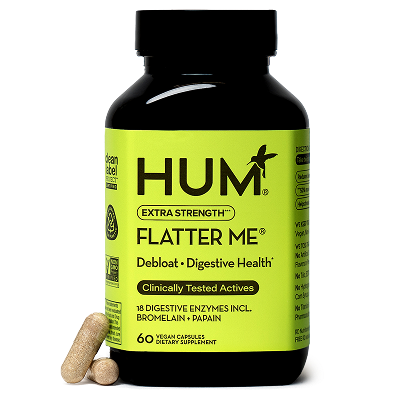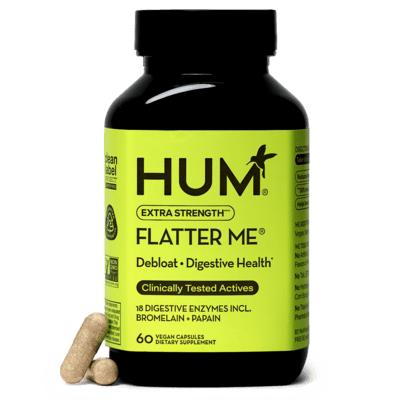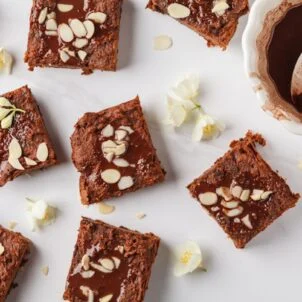We’ve all been there: One minute you’re enjoying dinner, the next, your jeans are tight, your stomach feels like a balloon, and you’re wondering what went wrong. Bloating is incredibly common, yet most of what we believe about it is either oversimplified or flat-out wrong.
The truth? Bloating isn’t always about what (or how much) you eat—it’s a combination of digestion, hormones, stress, and sometimes even the way you breathe. Let’s dig into some of the most common bloating misconceptions-and the simple strategies that can help.
Where Does Bloating Come From?
Bloating is a gastrointestinal (GI) condition common in individuals, usually as a result of trapped gas, fluid retention, and muscle tension in the abdomen. It can be caused by GI issues such as slow digestion, changes in diet, and swallowing too much air. However, lifestyle factors like lack of physical activity and stress can also play a part.
Misconceptions About Bloating
Bloating is Caused by Eating Too Much
It’s easy to assume that bloating comes from overeating, but portion size is rarely the main issue. While overeating can make your stomach feel stretched, bloating usually has more to do with what’s happening within your digestive system. Gas buildup, slowed digestion, fluid retention, or even hormonal changes can all leave your belly feeling swollen or tight. That’s why you might feel just as uncomfortable after a light salad (especially one loaded with fiber-rich veggies) as you do after a heavy meal.
Cutting Out Gluten or Dairy Is the Answer
One of the first ways many people attempt to treat their bloating is by eliminating certain ingredients from their diet. However, unless you have celiac disease, lactose intolerance, or a diagnosed sensitivity, cutting out gluten or dairy won’t solve your issue. In fact, removing these foods unnecessarily can deprive your gut of essential nutrients (like fiber) that support healthy digestion.
If You’re Bloated, You Must Be Constipated
Constipation occurs when stool moves too slowly through the digestive tract; the longer it lingers, the more pressure and gas can build up. As gastroenterologist and ATNS President, Dr. David Clarke, explains, “Certain bacteria metabolize intestinal contents into gases such as methane, which can put pressure on intestinal walls, causing a bloating sensation.” In other words, the longer stool sits in the colon, the more time bacteria have to ferment food, producing even more gas and making your belly feel swollen or tight. That said, bloating isn’t always about constipation—you can still feel puffy and uncomfortable even with regular bowel movements.
It’s Just a Digestive Issue
Bloating isn’t always about how you digest what’s on your plate—it’s often tied to hormonal shifts, stress, or even the meds you’re taking. Hormonal fluctuations—like those during PMS or ovulation—can trigger fluid retention and slow down the gut, leaving you feeling puffy even if your meals have been on point. Stress is another big player: when cortisol spikes, digestion slows, and gas or discomfort can feel more intense. On top of that, certain medications, from birth control to antidepressants, can alter hormones or fluid balance in ways that contribute to bloating. So while digestion plays a role, the root cause of bloating is often much more complex than food alone.
Carbonated Beverages Always Cause Bloating
Carbonated drinks often get blamed as one of the biggest bloating culprits; however, their effect on the body can vary from person to person. When you drink carbonated beverages, you’re also swallowing carbon dioxide, which, for some people, can make them feel full and gassy. (Some ingredients like artificial sweeteners and caffeine can also trigger bloating.) For others, they can sip on their sparkling beverages daily without a single issue. In fact, hydration—even from fizzy water—can sometimes help prevent bloating by keeping digestion moving smoothly. The key is noticing how your body reacts: if carbonation makes you feel puffy, cut back, but if it doesn’t bother you, there’s no need to ditch your LaCroix habit.
How to Reduce Bloating: Simple Strategies For Relief
Eat For Healthy Digestion
Start by slowing down your pace at the dinner table. Chewing each bite thoroughly and practicing other mindful eating tips helps reduce swallowed air (and overeating). Eating more mindfully not only prevents that overly full, bloated feeling, but it also gives your body time to register satiety. You can also focus on foods that naturally support digestion and minimize bloating, like zucchini, leafy greens, berries, and fermented options like yogurt or kefir. These choices are gentle on the gut, keep things moving, and provide nutrients that support overall digestive health.
Monitor Your Fiber Intake
Fiber can be your gut’s best friend, but eating too much too quickly can also backfire. If your diet lacks fiber, start gradually increasing your intake, aiming for a mix of soluble fiber (oats, apples, beans) and insoluble fiber (veggies, whole grains). This will keep your digestive system working properly and prevent bloating.
Hydrate (the Right Way)

Alongside a fiber-rich diet, staying hydrated is just as crucial for a healthy digestive system. Water keeps the digestive system moving, helping prevent constipation and the heavy, bloated feeling that comes with it. The U.S. National Academies of Sciences, Engineering, and Medicine recommendation for water intake is:
- 15.5 cups of fluids a day for men
- 11.5 cups of fluids a day for women
Move Your Body
Taking a little post-meal stroll can do wonders for your digestive system, helping food move more smoothly through your gut and reducing the chance of gas buildup. Doing yoga or stretching can also help push trapped gas along, relieving abdominal pressure and making you more comfortable.
Manage Stress & Hormones
Your mind and gut are deeply connected, so managing stress and hormones is needed to beat the bloat. Deep breathing exercises, meditation, or simply getting better sleep can reduce bloating overall. It can also be helpful to track your cycle so you can minimize hormone-related bloating during your period.
Incorporate a Few Supplements
Even if you’re doing all the right things, sometimes diet and lifestyle alone aren’t enough to tackle bloating- this is where natural supplements can give your digestive system the extra support it needs. HUMs Flatter Me contains 18 enzymes that help break down even the hard-to-digest foods, effectively reducing bloating in as little as 30 minutes. If you’re looking for more of a preventative solution that you can take daily, Daily Cleanse is your answer. The supplement supports your body’s natural detoxification pathways and promotes digestion, helping you feel lighter and less puffy. Clarke also recommends taking an enzyme medication that digests lactose for those who have an intolerance.
When to See a Doctor
Occasional bloating is normal, but if it’s constant, painful, or paired with red flags (i.e., weight loss, blood in the stool, severe cramps), it’s time to see a professional. Conditions like IBS, celiac disease, or endometriosis can mimic everyday bloating but should be diagnosed and treated by a medical professional.
The Takeaway on How to Reduce Bloating
It’s clear that bloating is much more than overeating or fizzy drinks. It’s a multidimensional issue tied to digestion, hormones, stress, and lifestyle. While it may be difficult to escape the discomfort of bloating entirely, making a few simple tweaks can help you feel light and energetic, no longer weighed down by fullness.










